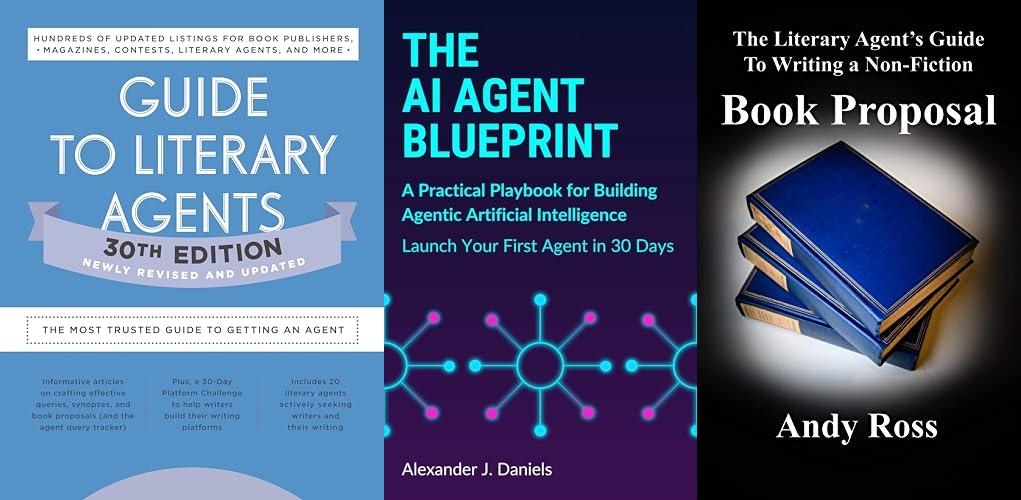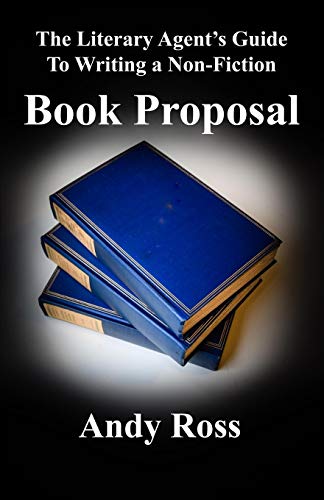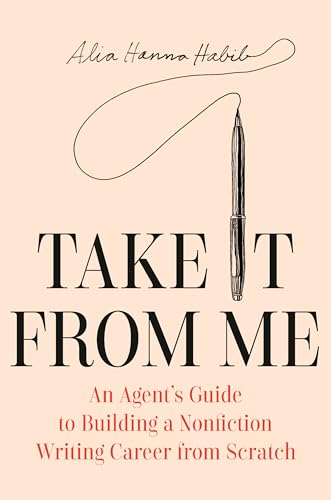Imagine pouring your heart and soul into a story, crafting characters that feel like friends, and building worlds that leap off the page. You’ve done it! But now comes a big question: how do you get your amazing book into the hands of readers? For many authors, the answer lies with a literary agent.
Choosing a literary agent can feel like navigating a maze. There are so many out there, and figuring out who will best champion your work feels overwhelming. Many writers worry about picking someone who doesn’t understand their genre, or worse, someone who isn’t dedicated to their success. It’s a crucial step, and getting it right can make all the difference.
This post is here to help. We’ll break down what a writing agent actually does and guide you through the process of finding the perfect partner for your writing journey. By the end, you’ll feel more confident about identifying agents who will love your story as much as you do and help you achieve your publishing dreams.
Our Top 5 Writing Agents Recommendations at a Glance
Top 5 Writing Agents Detailed Reviews
1. Guide to Literary Agents 30th Edition: The Most Trusted Guide to Getting Published
Rating: 8.7/10
The Guide to Literary Agents 30th Edition: The Most Trusted Guide to Getting Published is your essential tool for navigating the world of book publishing. This book helps writers connect with literary agents who can help them get their stories into the hands of readers. It’s packed with information that aspiring authors need.
What We Like:
- It lists thousands of literary agents.
- It gives you tips on how to write a great query letter.
- It explains what agents are looking for in manuscripts.
- The information is updated yearly, so it’s always current.
- It helps you understand the publishing process better.
What Could Be Improved:
- Some of the agent listings might not be as detailed as some users would prefer.
- The sheer amount of information can feel a little overwhelming at first.
This guide truly simplifies the path to getting published. It’s a valuable resource for anyone serious about their writing career.
2. The AI Agent Blueprint: A Practical Playbook for Building Agentic Artificial Intelligence: Launch Your First Agent in 30 Days
Rating: 9.3/10
Are you curious about building your own AI agent? The AI Agent Blueprint: A Practical Playbook for Building Agentic Artificial Intelligence: Launch Your First Agent in 30 Days might be just what you need. This guide promises to show you how to create your very own agent in a month. It’s designed to be a practical, step-by-step resource for anyone wanting to dive into agentic AI.
What We Like:
- Clear, actionable steps for building an AI agent.
- The 30-day launch goal makes it feel achievable.
- Focuses on practical application rather than just theory.
- Helps demystify complex AI concepts.
What Could Be Improved:
- More examples of different types of agents that can be built.
- Deeper dives into troubleshooting common issues.
- Could benefit from a glossary of AI terms for beginners.
This playbook aims to make AI agent creation accessible. It’s a good starting point for those eager to build and experiment with their own intelligent agents.
3. The Literary Agent’s Guide to Writing a Non-Fiction Book Proposal
Rating: 9.1/10
Aspiring non-fiction authors, listen up! “The Literary Agent’s Guide to Writing a Non-Fiction Book Proposal” is your secret weapon. This guide cuts through the confusion and shows you exactly what literary agents are looking for. It’s like getting a backstage pass to the publishing world, all from the comfort of your own desk. You’ll learn how to craft a proposal that grabs attention and makes editors want to sign you up.
What We Like:
- Clear, step-by-step instructions make the proposal process less scary.
- It explains what agents *really* want to see, saving you time and effort.
- The advice feels practical and directly applicable to writing your proposal.
- It helps you think like a professional from the start.
What Could Be Improved:
- Some sections could benefit from more concrete examples of successful proposals.
- While the advice is solid, it’s not a magic bullet; hard work is still required.
This guide provides a solid foundation for anyone serious about getting their non-fiction book published. It empowers you to create a compelling proposal that stands out.
4. Jeff Herman’s Guide to Book Publishers
Rating: 9.2/10
Jeff Herman’s Guide to Book Publishers, Editors & Literary Agents, 29th Edition: Who They Are, What They Want, How to Win Them Over is an essential tool for anyone dreaming of getting their book published. This guide helps writers understand the complex world of publishing. It tells you who the key players are. You’ll learn what publishers, editors, and agents are looking for in new books. The book also gives advice on how to impress them. It’s a roadmap for authors navigating this exciting industry.
What We Like:
- It offers a comprehensive list of contacts in the publishing industry.
- The guide provides valuable insights into what different publishers and agents seek.
- It offers practical tips on how to approach and connect with these professionals.
- The information is updated regularly, keeping it relevant.
- It empowers writers with knowledge to make informed decisions.
What Could Be Improved:
- The sheer amount of information can feel overwhelming for absolute beginners.
- While comprehensive, some entries might benefit from more detailed examples of successful pitches.
This guide is an invaluable resource for aspiring authors. It’s a smart investment for anyone serious about getting their manuscript into the hands of the right people.
5. Take It From Me: An Agent’s Guide to Building a Nonfiction Writing Career from Scratch
Rating: 9.1/10
Are you dreaming of a career in nonfiction writing but don’t know where to start? “Take It From Me: An Agent’s Guide to Building a Nonfiction Writing Career from Scratch” is your roadmap. This book offers practical advice from someone who knows the publishing world inside and out. It helps you understand what agents look for and how to get your work noticed. If you want to turn your passion for writing into a profession, this guide is a valuable resource.
What We Like:
- Clear, step-by-step guidance for aspiring nonfiction writers.
- Insider tips from a literary agent provide a unique perspective.
- Focuses on building a career from the ground up, making it accessible for beginners.
- Encourages realistic expectations and practical strategies.
What Could Be Improved:
- The book is very focused on fiction agents. More specific advice for nonfiction would be helpful.
- Some sections could have more real-world examples of successful pitches.
This book equips you with the knowledge and confidence to start your nonfiction writing journey. It’s a smart investment for anyone serious about making their mark in the publishing industry.
Your Guide to Choosing the Best Writing Agents
Finding the right writing agent can make a big difference in your writing journey. This guide will help you pick one that fits your needs. We will explore what to look for, what makes them good, and how people use them.
1. Key Features to Look For
When you shop for a writing agent, think about what you need it to do.
**Comfortable Grip:**
- A good writing agent feels nice in your hand.
- It should not make your hand tired after writing for a long time.
- Look for soft rubber or smooth plastic that fits your fingers well.
**Ink Quality:**
- The ink should flow smoothly.
- It should not skip or blob.
- Vibrant colors make your writing stand out.
- Some pens have quick-drying ink, which is great for left-handed writers.
**Durability:**
- You want a writing agent that lasts.
- Check if the clip is strong.
- Make sure the tip is sturdy and does not break easily.
**Tip Size:**
- Tips come in different sizes, like fine, medium, or bold.
- A fine tip is good for small writing or detailed drawings.
- A medium tip works well for everyday writing.
- A bold tip makes your writing thicker and easier to read from a distance.
2. Important Materials
The materials used to make a writing agent affect its feel and how long it lasts.
- Plastic: Many writing agents use plastic. Cheaper plastic might feel flimsy. Higher quality plastic is stronger and lasts longer.
- Rubber: Rubber is often used for grips. It makes the pen comfortable to hold and stops it from slipping.
- Metal: Some premium writing agents have metal parts. This makes them feel heavier and more solid. Metal also makes them very durable.
- Ink: The ink itself is important. Gel ink is smooth and bright. Ballpoint ink is reliable and lasts a long time.
3. Factors That Improve or Reduce Quality
Several things make a writing agent better or worse.
**Things That Improve Quality:**
- Ergonomic Design: Pens shaped to fit your hand reduce strain. This makes writing more comfortable.
- Smooth Ink Flow: Consistent ink flow means no skipping or blobbing. Your writing looks neat.
- Good Balance: A well-balanced pen feels good to hold. It does not feel too heavy or too light.
- High-Quality Materials: Using strong plastic, good rubber, or sturdy metal makes the pen last longer.
**Things That Reduce Quality:**
- Cheap Plastic: This can crack or break easily.
- Inconsistent Ink: Skipping ink makes your writing look messy. Blobbing can smudge your paper.
- Poor Grip: A slippery or uncomfortable grip makes it hard to write for long.
- Flimsy Parts: A weak clip or a tip that bends easily lowers the quality.
4. User Experience and Use Cases
How you use a writing agent and what you use it for matters.
**Everyday Writing:**
- For school or office work, a reliable pen is key.
- Comfortable grips are important for long note-taking sessions.
- Quick-drying ink is a plus for students who write a lot.
**Creative Projects:**
- Artists might use pens with vibrant colors for drawing.
- Fine tips are useful for detailed sketches.
- Some people like pens with special effects, like glitter ink.
**Special Occasions:**
- A fancy pen can be a great gift.
- Pens with elegant designs and smooth writing are perfect for signing important documents.
Frequently Asked Questions (FAQ) about Writing Agents
Q: What is the most important feature of a writing agent?
A: The most important feature is how comfortable it is to hold. If a pen is not comfortable, you will not want to use it.
Q: Should I choose a fine tip or a medium tip?
A: It depends on your writing style. Fine tips are good for small writing. Medium tips are good for general use.
Q: What kind of ink is best?
A: Gel ink is very smooth and bright. Ballpoint ink is reliable and lasts longer.
Q: How can I tell if a writing agent is durable?
A: Look for sturdy materials like strong plastic or metal. Check if the clip feels solid.
Q: Can a writing agent help me write faster?
A: A smooth-writing pen can make writing feel easier and faster. A comfortable grip also helps.
Q: Are expensive writing agents always better?
A: Not always. Many affordable pens offer great quality. Price often depends on brand and special features.
Q: What is an ergonomic design?
A: Ergonomic means it is designed to fit your hand well. This makes it comfortable to hold and use.
Q: Can I use a writing agent for drawing?
A: Yes! Many pens work well for drawing. Look for ones with good ink flow and the tip size you need.
Q: How do I care for my writing agent?
A: Keep the cap on when not in use to prevent the ink from drying out. Store them tip-up if possible.
Q: Where can I buy good writing agents?
A: You can find them at office supply stores, bookstores, and online retailers.
In conclusion, every product has unique features and benefits. We hope this review helps you decide if it meets your needs. An informed choice ensures the best experience.
If you have any questions or feedback, please share them in the comments. Your input helps everyone. Thank you for reading.






